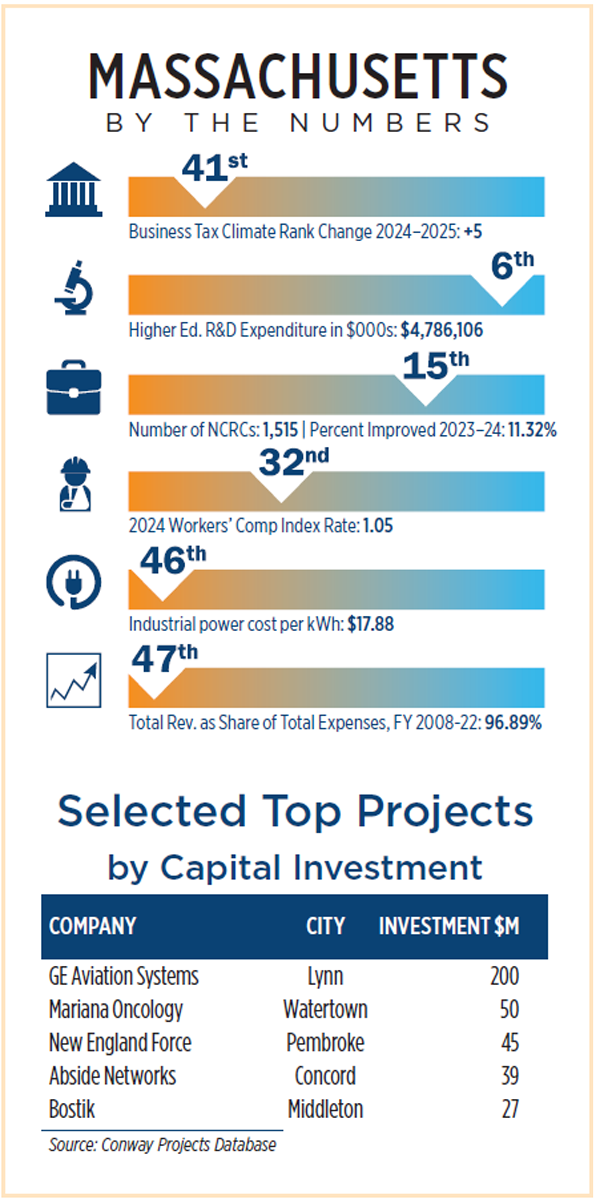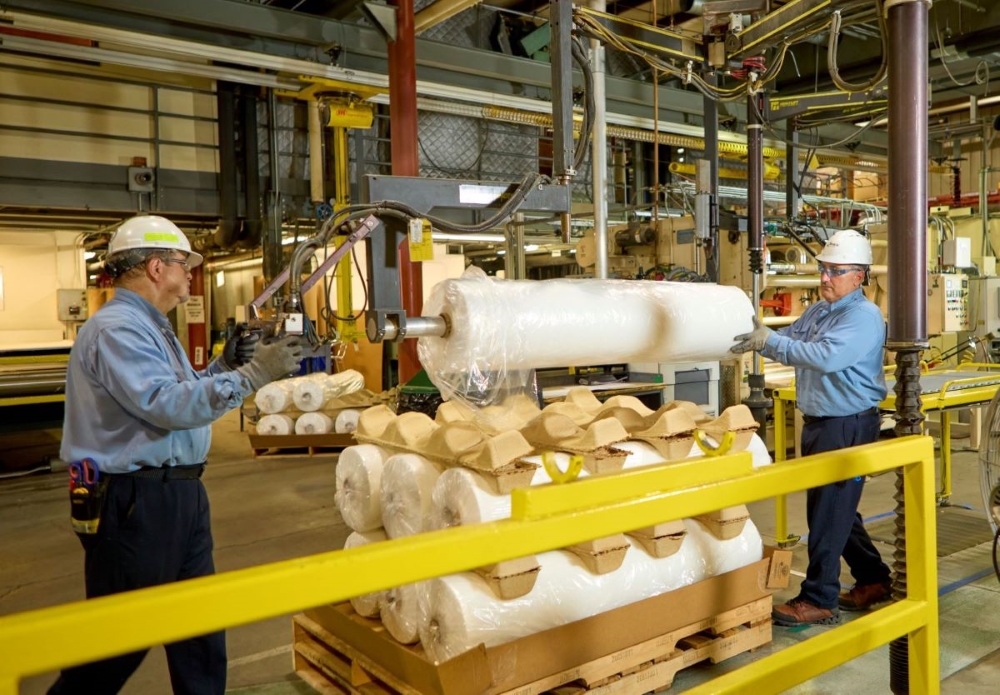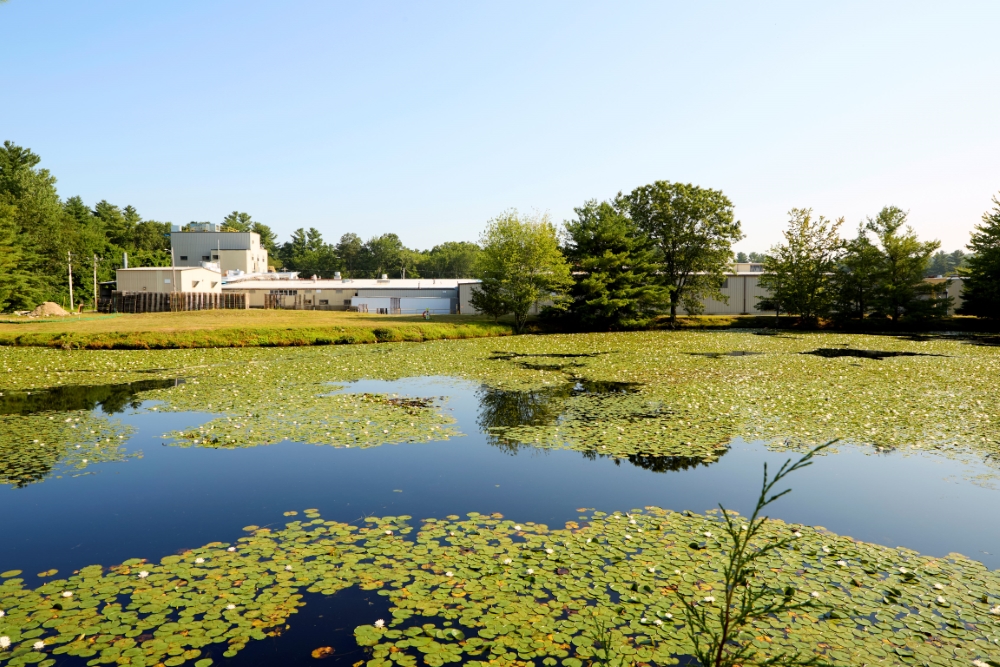Known as a leader in biotechnology and scientific innovation, Massachusetts’ war chest is growing with the help of private industry efforts and a $2 billion economic development bill, the Mass Leads Act, signed into law in late 2024 by Governor Maura Healy. The measure grants authorizations for capital spending across artificial intelligence, public infrastructure, clean technology, rural development and site readiness.
“The state is in a very strong fiscal position,” says Michael Goodman, professor of public policy at UMass Dartmouth. “We are home to many elite higher educational institutions, research institutions and world-class teaching hospitals that have supported a lot of technology and innovation-based growth and development.”
An Economy Built on Resilience
Preceding the Mass Leads Act was the Life Sciences Initiative signed into legislation by Gov. Deval Patrick in 2008 that invested $1 billion over 10 years in the biotechnology and life sciences sectors of the Commonwealth. Like the 2008 bill, the Mass Leads Act will provide a $500 million capital reauthorization of the state’s Life Sciences Initiative over 10 years and an expansion of a tax credit program aimed at job creation and growth in this sector; $400 million in climatech initiatives and a new tax incentive program for climatech companies; and a $100 million investment to create the Massachusetts AI Hub.
“There was bipartisan support for these investments,” says Goodman. “I think innovation more broadly has been a real economic growth driver for the state.”

The investments align with state climate and decarbonization goals and provide a significant amount of opportunity for states like Massachusetts, says Goodman, noting that these capital investments are designed to position Massachusetts competitively as these industries continue to grow.
In June 2025, the Healey-Driscoll Administration and the Massachusetts Life Sciences Center (MLSC) announced $29.9 million in tax incentive awards to 33 life sciences companies through the MLSC’s Tax Incentive Program. The awards are expected to create 1,519 new life sciences jobs in the state.
As one of the editors of the journal MassBenchmarks, an initiative of the University of Massachusetts Donahue Institute and the Federal Reserve Bank of Boston that regularly evaluates the state’s economy, Goodman notes that Massachusetts has taken a healthy but longer route to recovering its economy since the COVID-19 pandemic.
“We are still experiencing pretty solid economic performance,” Goodman says. “The word of the day is resilience.”
In the August 2025 update of MassBenchmarks, the leading index projected that the rate of growth in Massachusetts GDP will continue to be moderate over the rest of the year, with annualized growth rates of 2% in the third quarter and 1.9% in the fourth quarter.
Expanding Manufacturing in Middleton
The Commonwealth also has a strong arm in advanced manufacturing. Bostik, the adhesive and coating solutions arm of multinational manufacturer Arkema, is pursuing a $27 million investment at its Middleton location. Jeff Merkt, SVP of Bostik North America, discussed the expansion made to the existing site.
“This specific expansion is to enhance the amount of copolyester resins we can produce in Middleton,” says Merkt. “A copolyester resin can be used in many different ways as an adhesive or a coating. It’s got a very high temperature resistance or chemical resistance. The inside coating of a can uses copolyester technology. It fights against the acids in food. The interiors of most major airplanes are [also] utilizing copolyester technology.”
Given its long manufacturing operations history in the New England area and a high-performance work group that services the facility, the Middleton facility was an obvious choice for further development.

A majority of the construction work being done at the Bostik site in Middleton has been contracted out to Massachusetts vendors.
Image courtesy of Arkema North America
“It was a relatively easy decision to expand that site,” says Merkt. “Arkema operates just under 50 sites in North America, so we had many locations to choose from, but we selected Middleton given the great experience we have had in the past.”
Arkema has spent $12 million of the $27 million investment during its construction phase so far, with two-thirds going toward Massachusetts-based contractors.
“The people doing the piping work, or the people doing the welding, or those doing the rigging that’s required, or the people who are doing the civil part of the project — they are all local vendors,” says Merkt.
As a large supplier of materials that go into the construction industry (flooring products, bonding of glass to buildings, building envelope protection, tape for wrapping houses and flashing sprayed onto buildings), Bostik stakeholders carefully consider the types of chemicals used in building construction as well the type of process that is used to build something precast or modular in apartments and homes. Merkt also noted the steps being taken to ensure sustainable on-site operations.
“Sustainability is a really important topic for Arkema, and we believe we are one of the leaders in that space as a chemical company,” he says. “We have super ambitious climate plans that include Middleton. We’re trying to reduce our greenhouse gas emissions, scope 1 and scope 2, by 48%. And we’re trying to reduce our scope 3 emissions by 67%. And these are goals that are science-based, target initiative-validated from 2019 to 2030.”

